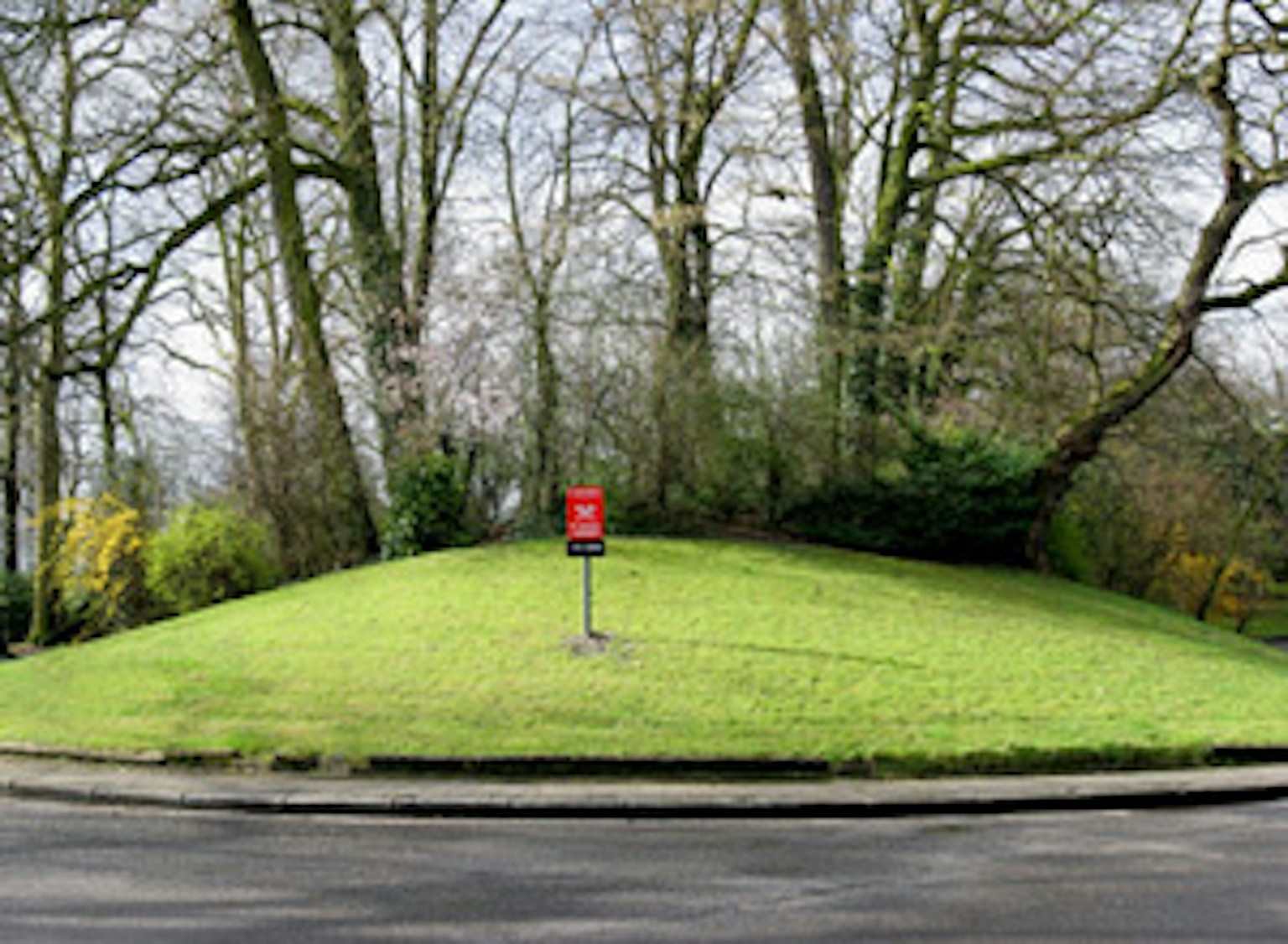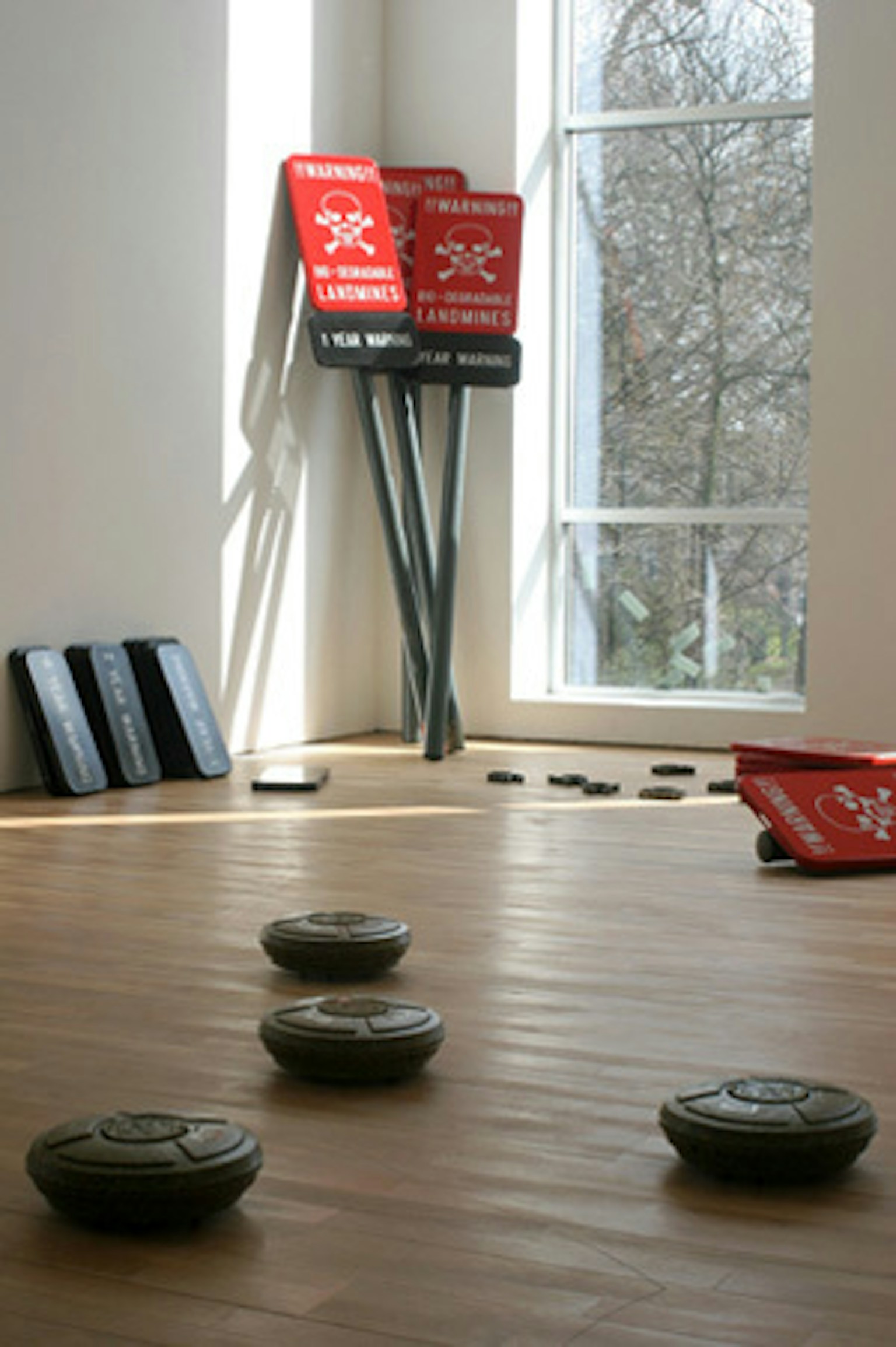In recent years Ives Maes has revolved round his Recyclable Refugee Camp project, an ironic attempt to make an absolutely ethnically correct work of art.
It was the crystallisation of his critical reflection on Michelangelo Pistoletto’s Progretto arte manifest and the associated ideas on the social responsibility of art and the artist in the transformation of the world. Passionate in his conviction of the freedom of art, Ives Maes attempts to formulate a tangible response to the hyper-ethical tendency. He integrates the mechanisms of the ethnically-correct consciousness into his work, but in an exaggerated form. At first sight he seems to be offering a valid solution to existing social issues, such as refugees and ecology. But the work exists only within its own artistic context, and its apparent social functionality turns out to have highly ironic foundations. In The Greenery Line he further extends the tactic of exaggeration, and turns his attention to the controversy about landmines. Landmines remain a danger to innocent citizens long after an armed conflict has finished. Belgium has played a pioneering role in this matter. In 1995 it was the first country to pass legislation banning antipersonnel mines. In the light of the Belgian political commitment to this issue, The Greenery Line is a challenging proposal for a biodegradable landmine, accompanied by a violent invasion of Ghent city centre.


